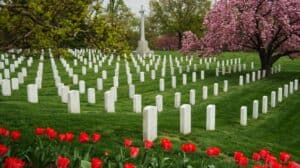
Ask people these 298 Vietnam War soldier questions for storytelling.
Researching and writing about military service and war experiences can be particularly challenging. Stories run the gamut of being very funny to very emotionally gripping. Military service stories can be about the individual who served in the military and the individuals who stayed home, such as spouses, children, extended family, and friends.
I have put together a list of writing prompts and questions to ask soldiers/veterans based on the answers I have received in interviews and information I have discovered during my research. Use these prompts and questions to help you
- Identify events and memories you can write about
- Identify individuals to include in your stories
- Organize your research strategy
- Identify who to interview and ask about information
- Know what type of information to include in the narratives and stories
- Identify memorabilia, artifacts, photos, documents to include in stories
Approach each topic from the point of view of the person/lives you are writing about. Review the prompts and questions and determine whether you want to address the question during an interview, narrative or story you are writing.
Vietnam War 1955-1975 Overview

Fought between 1955 to 1975, the Vietnam war was a conflict that that was fought in Vietnam, Laos, and Cambodia from November 1, 1955, to the fall of Saigon on April 30, 1975. The war was officially fought between North Vietnam (supported by Soviet Union, China and other communist allies) and South Vietnam (supported by the United States, South Korea, Phillippines, Australia, Thailand, and other anti-communist allies).
The United States became involved in Vietnam after the French pulled out of the region, known as Indochina, in 1954 after stopping their attempt to recolonize the region, which by then had become an armed conflict. The decisive end came when communist forces won a major victory over French back forces at the Battle of Dien Bein Phu in May 1954.
The United States assumed financial and military support for the South Vietnamese state. The Viet Cong (the National Liberation Front, NLF) had initiated a guerrilla war in South Vietnam. The Viet Cong was a South Vietnamese front that was under the direction of North Vietnam. During this same era, North Vietnam also evaded Laos to support the Viet Cong’s insurgents by creating what came to be known as the Ho Chie Minh Trail to provide supplies and reinforcements to the Viet Cong.
United States involvement in Vietnam escalated when the United States President, John F. Kennedy, under the MAAG Program, sent military advisors to North Vietnam MAAG stands for Military Assistance Advisory Group, under which military advisors can be sent to other countries to assist and help in training conventional armed forces and also to facilitate military aid. A total of 23,000 military advisors were sent between 1959 and 1964.
In August 1964, United States involvement increased in the Vietnam War when a U.S. destroyer in the Gulf of Tonkin was alleged to have had a clash with a North Viet fast attack craft. In response, U.S. Congress passed the Gulf of Tonkin Resolution, giving U.S. President Lyndon B. Johnson authority to increase American presence in Vietnam.
President Johnson then ordered the deployment of the first combat units, which raised the troop levels to 148,000. The U.S continued to significantly build troop levels despite little progress. The U.S. and South Vietnamese forces were supported by extensive air superiority and overwhelming firepower to engage in search and destroy operations, supported by ground forces, artillery and airstrikes. In addition, the U.S. conducted a large-scale bombing against North Vietnam and Laos. The bombing campaign was designed to disrupt incoming supplies that were being carried along the Ho Chi Minh trail into Vietnam.
Throughout 1968, the Viet Cong and North Vietnam Forces mounted a large-scale offensive engagement, Tet Offensive), against the U.S. and the Army of the Republic of Vietnam (ARVN), South Vietnam army. They lost over 50,000 soldiers. By the end of 1968, Viet Cong insurgents held almost no territory in South Vietnam, and their recruitment dropped by 80%. In 1970, over 70% of the communist troops fighting in South Vietnam were from North Vietnam. The Viet Cong Units no longer existed.
As the war dragged on, opposition to the Vietnam War became intense and divided Americans. In 1969, with the election of U.S. President Ricard M. Nixon, the policy of “Vietnamization” began. This was a strategy focused on reducing American involvement in Vietnam War and transferring military responsibility to South Vietnam.
The U.S. Military inflicted tremendous punishment on North Vietnam and their Viet Cong guerrilla allies. The enemy forces absorbed the punishment and remained determined to overthrow the U.S.-supported South Vietnam government and reunite the country under communist rule.
The United States signed a peace agreement with North Vietnam in January 1973, with ended open hostilities between the countries. The war between North and South Vietnam continued until April 30, 1975, when communist forces captured Saigon. The country was united as the Socialist Republic of Vietnam the following year.
The human cost of the war overwhelming with the following estimates:
- Vietnamese soldiers and civilians killed range from 966,000 to 3.8 million, 3 million wounded, and 12 million refugees
- Cambodians 275,000 to 310,000
- Laotians 20,000 to 62,000
- American service members 58,220 with 1,626 missing in action
For more information, see:
Writing Prompts and Questions for Vietnam War Narrative
The writing prompts and questions to ask about Vietnam War Service are part of a 28 article, 108 category series entitled “7,500-plus Questions About Life to Ask People When Writing Narratives.” The prompts and questions are provided to help you look at WWI military service from as many angles as possible. Two categories have been prepared.
- Vietnam War Soldier Narratives (1959-1975). Find 214 writing prompts and questions to ask about a person who joined the military during the Vietnam War. They include questions about the branch of service, training, activities, memories, injuries, associations with people who stayed home (e.g., spouse, children, friends, family) coming home, life after War, perceptions, memorabilia, events.
- Vietnam War Non-Soldier Narratives (1959-1975). Find 84 writing prompts and questions to ask about a person who stayed home and did not join the military service during the Vietnam War. They include questions about life at home, associations with people in the military, activities, memories, associations at home (e.g., spouse, children, friends, family), work, end of War, community, perceptions, memorabilia, events.
Approach each topic from the point of view of the person/lives you are writing about. You don’t have to ask every question. Review the questions and determine which ones are most appropriate to ask. I would encourage you to modify and add questions as you desire.
I have prepared a couple of other resources that will provide value in interviewing for and writing individual, personal, and family narratives: “Complete Guide for Conducting Oral History Interviews” and “Complete Guide to Writing A Personal Narrative.”
Vietnam War Soldier Narrative

Use the Vietnam War Soldier prompts and questions to gather and organize information to help you write narratives about yourself, your family, and others. If you are writing about a deceased person, think of the questions as if you were the person answering the questions.
Introduction for Vietnam War Soldier Narrative
- I would like to ask you a few personal questions to get started?
- What is your full name? Please spell.
- Who were your parents?
- When and where were you born?
- Who were your brothers and sister?
- Where did you grow up?
- What was your family background?
- What is your educational background?
- What is your current occupation?
- What is your current address?
- What did you do between the end of high school and entering the service?
Enlistment and Training for Vietnam War Soldier Narrative
In this section, you will be discussing the beginning of the military experience, which lays the foundation for the most important section-Active Duty Experiences. If this section begins to drag, move to the next section. Come back to these questions at the end of the interview or another interview session.
-
- Which branch of the armed forces did you serve in?
- Did you enlist, or were you drafted?
• How did you feel about the draft?
• Do you remember the date? (Month/Day/Year)
• How old were you?
• Did your friends also join the service?
• If drafted, what did you think of the service they assigned you?
• What do you remember about entering the recruitment office? Were there many other people? What did they have you all do? - Were you philosophically or politically opposed to serving in the military, or were you proud to serve your country?
- What was your full rank?
- How did you feel knowing you were part of the armed forces?
- What was it to say goodbye to your family before you shipped off?
- Where were you sent for induction?
• What did you do there?
• What do you remember seeing? - Can you please tell me all the places you went for training? What did you do at each place?
- Describe basic training.
• Describe your typical day in basic training?
• How often would you march? - Who was your commanding officer?
- Who were your peers?
- Where and for how long were you trained?
• What did you do? - What do you remember about the other soldiers that went through your training with you?
• Did any of them become close friends? Explain.
• Did you have trouble getting along with anyone in your unit? Why? What became of it? How did you deal with it? - Did you have a nickname for the service?
- What were the memorable nicknames of others?
- How did you feel about sharing your space with others?
• Did it feel cramped at first?
• Was it easy to get used to? - What was it like getting acquainted with military life, including the physical regimen, barracks, food and social life?
- What was your most vivid memory of this time that you would like to share?
• Specific people or places?
• A certain event? - Did you feel as if you were well-prepared for your military duties?
• Were you exceptionally skilled at one particular task?
• Did it become a “specialty”?
• Did it turn out that you were prepared?
• What, if any, specialized training did you receive? If so, what and where? What if any specialized skills or training did you have before the military that helped you get your job? - Which weapons were you trained to use?
• How did you feel about using weapons?
• Were you comfortable with one in particular?
• Did you have to qualify on any weapons in basic training? If so, what? - Were you exceptionally skilled at one particular task?
• Did it become your “specialty”? - What did basic training do to build up or cut down your self-confidence?
• Why or why not? - Do you remember any of your instructors/ drill sergeants?
• If so, what were they like? - Do you recall any of your instructors?
• If so, what were they like? - Were you shown any war propaganda to help boos boost morale? Explain.
- Describe how you spent your recreation/free time during training?
- Where were you stationed after basic training?
• What were the people and the surrounding areas like?
• How long were you there? - How did you keep in touch with your friends and family back home during this time?
Active Duty Experiences for Vietnam War Soldier Narrative
The focus of this section captures the experiences of the veterans’ active duty. This is the central part of the military experience. You have access to veterans’ experience in the service and combat, someone who was there. You will be talking about missions, battles and retracing steps. You will define what was seen and what happened. Essentially, you will be retracing the same scenes, noises and smells, even horrors endured. Some of the parts you review may be very difficult to share. Reassure the person that these are essential parts for others to hear and understand just how life in the military and war are. These experiences recant the sacrifices that have been for those that follow in later generations.
-
- What military units were you a part of?
- What was your role in that unit?
- After training, what did you with your time before you had to report to your first assigned duty station or and being shipped overseas?
- Where you ever shipped overseas?
• What was your port of embarkation for deployment?
• How did you travel to the war zone?
• Tell me about the experience.
• When and where did you arrive overseas?
• How long did it take?
• What do you remember seeing?
• What was your first impression of the country? - What type of equipment and uniform were you issued before being deployed into the combat zone?
- What were your orders?
- Were you enlisted or an officer? If an officer,
• What were your responsibilities as an officer?
• Did anyone serve under you? How many? What do you remember about them?
• Were you involved in planning for any battles? - Did you serve in combat?
• Did you feel pressure or stress?
• Was there something special you did for “good luck”? - Do you serve in a support role?
• Describe the role.
• Did you feel pressure or stress - Describe your military experiences in terms of most…
• Interesting experiences?
• Exhausting experiences?
• Harrowing experiences?
• Frightening experiences?
• Feeling alone or detached from others?
• Pressure or stress?
• Exciting experiences?
• Unusual experiences?
• Humorous experiences? Where there pranks that you or others would pull? Explain
• Most memorable experiences? - Which battles did you participate in?
• Describe the time, place, number of participants, and what happened.
• How did these battles affect the War as a whole?
• What role did your unit play in this battle? - Did you ever meet any POWs?
• Describe the experience? - Were you ever a POW?
• When and where were you taken, prisoner?
• Where were you taken?
• How were you treated?
• Do you remember the food and living conditions?
• Do you remember any of the other prisoners? Explain.
• Describe the best and worst experiences?
• When were you freed, and what was it like?
• What else do you remember about the experience? - How would you describe your morale?
• What was the overall morale of your comrades? - Did you witness any racial discrimination in the military/platoon?
- How did you and members of your platoon regard the enemy?
- What was your main mission in Korea?
- During the War, what do you remember seeing? Describe the impressive
• Military weapons?
• Enemy weapons?
• Places you experienced? - What was it like regarding living conditions, food, sleep for soldiers?
- What were living conditions like for civilians?
- Did you become close friends with any of those you fought with?
• Did they keep in touch?
• Did you save any of their lives?
• Did they save yours? - Did you ever need to take someone’s life?
• Briefly describe the experience.
• How did it affect you both immediately and in the long term? - Were you injured or wounded in any way?
• Describe what happened.
• What went through your mind when you realized you were hurt?
• If you were injured, did you heal quickly or not?
• How did it change you in ways that you still noticed years later? - How did people entertain themselves?
- Were there entertainers such as the USO show?
- What did you do when on leave?
- Did you write home?
• To whom?
• What would you write about?
• Did you receive letters? From whom? - What did you think of officers or fellow soldiers?
- If you were injured, did you heal quickly or not?
• Did you return home because of the injury, or did you go back to fight? - Where were you when the war ended?
• Describe the experience. - Where you married during the War?
• To whom?
• Explain the experience surrounding your dating and marriage?
• Did you have children? - How did it change you in ways that you noticed years later?
After the Service for Vietnam War Soldier Narrative
At this point, you are winding down the military experience. You are focusing on what it was like after active duty, postwar life and readjusting to civilian life and society.
-
- How did you feel when your tour was over?
- What was your highest rank?
- Why did you leave the service?
• Honorable discharge?
• Injury?
• End of active duty? - Describe the circumstances and how you felt about them.
- How and when did you return home?
• What was the first thing you remember doing?
• What was the experience like coming home?
• What was it like seeing your family for the first time? - How were you received by family and the community?
- Did you use the GI Bill?
79. Were you able to return to “normal ” and put the military experience behind you? Explain.
• What was the hardest experience about returning to civilian life?
• Was there someone or something helpful in getting you through the adjustment of returning home? What was their role?
• What did they do?
80. What did you learn from your experiences in the military?
• Why were these lessons valuable to you?
• How did they change your and your ideas or values?
• How would you have been different if you had never had these experiences? - Have you ever joined a veterans group?
- What does Veterans Day mean to you?
- What does Memorial Day mean to you?
- In your opinion, what are the lessons of the Vietnam War?
- Do you ever experience flashbacks?
- Do you have any regrets?
- Are there any books or movies related to the Vietnam War/Vietnam War Era you would recommend?
- Was Vietnam War worth it?
- Have you visited The Vietnam War Memorial in Washington, D.C.? If so, how do you feel about it?
- Do you think that the United States won or lost the Vietnam War?
- Have you ever been back to Vietnam, or would you like to go back?
- What do you envision as the role of our military today? In the future?
- What would you like to say about those who died in the War?
- Would you like to leave a message or advice for future generations?
• Do you have any wisdom you would like to impart to me?
• What message do you what to share with your children? - Is there anything we should have discussed but did not?
Artifacts and Memorabilia for Vietnam War Soldier Narrative
-
- Did you keep a personal diary?
- Did you record your memoirs on tape or in print?
- Did you save any letters you might have written or received?
- What sort of memorabilia did you save from this time? What did it symbolize to you? What memories or feelings did/does it bring back? What kind of memorabilia did you keep from this time? What did it represent to you? For example, are there
• Military records and artifacts
• Photographs
• Writings
• Scrapbooks and momentous
• Journals, written and oral family histories
• Newspapers
• Death event records
Closing Thoughts for Vietnam War Soldier Narrative
-
- What did you think of the media coverage on TV about Vietnam?
- Did you ever participate in Vietnam war protests?
- What would you share with future generations about your wartime experience?
- Why were these lessons valuable to you? How did they change you and your ideas or values?
- How would you be different if you had never had these experiences?
- Is there anything else I should ask you?
- s there anything that you would like to add on this subject
Click Here to return to the question and writing prompt categories.
Vietnam War Non-Soldier Narratives

Use the Vietnam War Non-Soldier prompts and questions to gather and organize information to help you write narratives about yourself, your family, and others. If you are writing about a deceased person, think of the questions as if you were the person answering the questions.
Introduction for Vietnam War Non-Soldier Narrative
-
- I would like to ask you a few personal questions to get started?
- What is your full name? Please spell.
- What was your maiden name? Please spell.
- Who were your parents?
- When and where were you born?
- Who were your brothers and sister?
- Where did you grow up?
- At the time of the War, were you in a relationship, married, or single?
- What were your spouse’s or partner’s name and wartime occupation?
Life During War for Vietnam War Non-Soldier Narrative
-
- Why did you stay home for that time?
- Were you not called up, or was your tour of duty shorter than the War’s duration?
• Were you too young or too old?
• Did you wish that you could have gone?
• What was it like at home? - If your spouse was in the service, how do you feel about the support you received from the service?
- Did the War affect your physical or mental health in any way?
- How did you feel about America being at or going to War?
- What did you think about the enemy?
- How did you feel about war news from television, radio, or newspapers?
- Did you trust American military and civilian leaders?
- Did your views about the war change over time? Explain.
- What did you think of the media coverage on TV about Vietnam?
- Did you ever participate in Vietnam war protests?
- What changes took place in your life after the War started?
- What responsibilities did you have to take on? Where they difficult?
- Were you involved in social activities at work or after work with coworkers?
- What type of personal entertainment did you participate in outside of work?
- Did you or others get married during wartime?
• What were weddings like?
• Discuss your dating, marriage, and life as a married person during the War? - What was the most significant sacrifice you had to make because of it?
- What was your main wartime activity?
- Did any friends or family fight in the War?
• How did you feel when they left?
• Were you scared?
• Did you think that you would never see them again, or did you feel that they would return?
• How did it turn out? - Describe your experiences during the War in terms of most…
• Interesting experiences?
• Exhausting experiences?
• Harrowing experiences?
• Frightening experiences?
• Feeling alone or detached from others?
• Pressure or stress?
• Exiting experiences?
• Unusual experiences?
• Humorous experiences? Where there pranks that you or others would pull? Explain
• Memorable experiences? - Were you or others in your community treated differently do their gender/ethnicity/race or other factors?
• If so, how did you or others react? - What effect did the War have on your physical and mental health?
- Do you think that medical care changed because of the War?
• How did you keep in touch with your loved ones who were away during this time? - How did your community respond to the war and civil defense (or other home front) initiatives?
- Did you save any letters you wrote or received?
- Did any friends or family die because of the War?
• Who?
• Did you know how he or she died?
• When did you find out about their death? - What was it like when your friends and family finally came home?
• Had they changed in ways you didn’t expect?
• Had you changed?
• Was it hard to adjust to the person that came home? How? Explain.
• What was easiest?
• How long did it take for life to return to normal?
• Did it ever?
Artifacts and Memorabilia for Vietnam War Non-Soldier Narrative
-
- Did you keep a personal diary?
- Did you record your memoirs on tape or in print?
- Did you save any letters you might have written or received?
- What sort of memorabilia did you save from this time? What did it symbolize to you? What memories and feelings did it bring back? What kind of memorabilia did you keep from this time? What did it represent to you? For example, are there
• Military records and artifacts
• Photographs.
• Writings
• Scrapbooks and momentous
• Journals, written and oral family histories
• Newspapers
• Death event records
Closing Thoughts for Vietnam War Non-Soldier Narrative
-
- What would you share with future generations about your wartime experience?
- Why were these lessons valuable to you?
• How did they change you and your ideas or values? - How would you be different if you had never had these experiences?
- What sort of memorabilia did you save from this time? What did it symbolize to you?
- Is there anything else I should ask you?
- Is there anything that you would like to add on this subject?
Click Here to return to the question and writing prompt categories.







